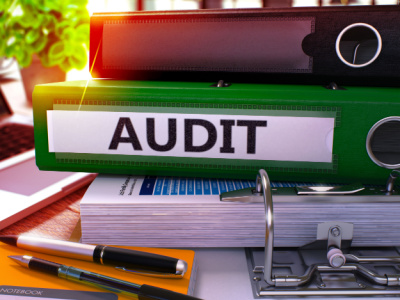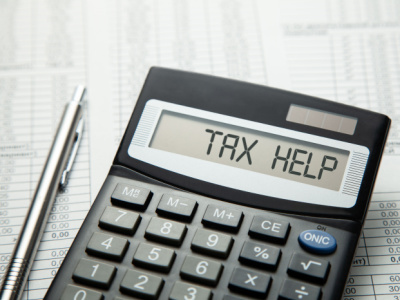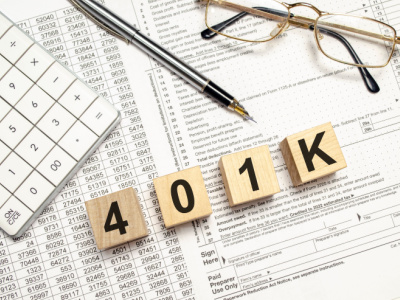Recent Blog Posts
Can Foreign Companies Face IRS Penalties Related to Transfer Pricing?
 There are a number of schemes that U.S. taxpayers may use to attempt to minimize the taxes they are required to pay to the Internal Revenue Service (IRS). While some schemes are legitimate, making use of opportunities provided under the tax laws, others are considered to be illegal, and they could result in tax audits by the IRS to identify misreported income or assets, address underpaid taxes, and assess penalties for nonpayment of taxes or failure to file the correct forms and reports. For international businesses or U.S. businesses that own foreign subsidiaries, transfer pricing is one area that may be under scrutiny by the IRS.
There are a number of schemes that U.S. taxpayers may use to attempt to minimize the taxes they are required to pay to the Internal Revenue Service (IRS). While some schemes are legitimate, making use of opportunities provided under the tax laws, others are considered to be illegal, and they could result in tax audits by the IRS to identify misreported income or assets, address underpaid taxes, and assess penalties for nonpayment of taxes or failure to file the correct forms and reports. For international businesses or U.S. businesses that own foreign subsidiaries, transfer pricing is one area that may be under scrutiny by the IRS.
Transfer pricing is a complex area of tax law that deals with the pricing of goods, services, and intellectual property transferred between related entities within multinational corporations or between U.S. parents and controlled foreign corporations (CFCs). During audits, the IRS may take steps to determine the appropriate prices for these transactions to ensure they reflect fair market value.
IRS May Change Reporting Requirements for Digital Asset Transactions
 Digital assets such as cryptocurrency and NFTs have gained significant popularity in recent years. As more people and businesses engage in digital asset transactions, it is important to understand the tax law implications and the reporting requirements set forth by the Internal Revenue Service (IRS). The IRS has issued notice that it may be implementing new rules affecting digital asset transactions. Owners of virtual currency or other digital assets may want to consider consulting with an attorney who has experience in this area to ensure that they meet all requirements put in place by the IRS and are taking the correct steps to avoid potential tax penalties.
Digital assets such as cryptocurrency and NFTs have gained significant popularity in recent years. As more people and businesses engage in digital asset transactions, it is important to understand the tax law implications and the reporting requirements set forth by the Internal Revenue Service (IRS). The IRS has issued notice that it may be implementing new rules affecting digital asset transactions. Owners of virtual currency or other digital assets may want to consider consulting with an attorney who has experience in this area to ensure that they meet all requirements put in place by the IRS and are taking the correct steps to avoid potential tax penalties.
What Are Digital Assets?
Digital assets are virtual or electronic representations of value that can be digitally traded or transferred. Some of the most well-known types of digital assets are cryptocurrencies such as Bitcoin, Ethereum, and Litecoin. These decentralized forms of currency operate using blockchain technology. Non-fungible tokens (NFTs), which use the blockchain to recognize ownership of assets such as images, videos, or music, are also considered digital assets.
IRS May Conduct More Tax Audits for Pass-Through Organizations
 For business owners, taxes are a significant concern. Fortunately, there are steps that can be taken to reduce a business’s tax burden by utilizing the deductions that are available. For many business owners, structuring a business as a pass-through entity can provide advantages. Pass-through entities such as partnerships, S corporations, and limited liability companies (LLCs) are popular choices among small businesses due to their flexibility and the pass-through deduction that was put in place by the Tax Cuts and Jobs Act of 2017.
For business owners, taxes are a significant concern. Fortunately, there are steps that can be taken to reduce a business’s tax burden by utilizing the deductions that are available. For many business owners, structuring a business as a pass-through entity can provide advantages. Pass-through entities such as partnerships, S corporations, and limited liability companies (LLCs) are popular choices among small businesses due to their flexibility and the pass-through deduction that was put in place by the Tax Cuts and Jobs Act of 2017.
However, owners of pass-through entities need to be aware of the risk that they could face tax audits. Recently, the IRS announced that its Large Business & International (LB&I) division would be focusing on large or complex pass-through entities as part of its ongoing effort to address tax evasion. Business owners who are facing IRS audits may want to consider working with an attorney who has experience in cases involving pass-through entities.
Can Taxpayers Face Penalties for Improper Art Donation Deductions?
 Art is a passion for many people, and some are fortunate enough to acquire impressive collections over several years. In some situations, a person may wish to donate artwork to charitable organizations. Not only does this allow a collector to give back to his or her community, but it also provides potential tax benefits in the form of deductions.
Art is a passion for many people, and some are fortunate enough to acquire impressive collections over several years. In some situations, a person may wish to donate artwork to charitable organizations. Not only does this allow a collector to give back to his or her community, but it also provides potential tax benefits in the form of deductions.
However, taxpayers who donate artwork can face penalties if they improperly claim deductions on their tax returns. The Internal Revenue Service (IRS) closely scrutinizes these types of deductions due to their potential for abuse and misrepresentation, and it may conduct tax audits in situations where art donations and tax deductions seem suspicious. For taxpayers who wish to donate art or claim other types of deductions, an attorney with experience in tax law can provide guidance and help avoid potential penalties.
Qualified Longevity Annuity Contracts Under the SECURE 2.0 Act
 Retirement planning is a crucial aspect of ensuring that a person and family will have a secure financial future. There are numerous methods that may be used to save money for retirement and ensure that it will be invested correctly and grow in value. At the same time, it is important to address tax-related issues related to retirement accounts and the distributions that will be received after retirement.
Retirement planning is a crucial aspect of ensuring that a person and family will have a secure financial future. There are numerous methods that may be used to save money for retirement and ensure that it will be invested correctly and grow in value. At the same time, it is important to address tax-related issues related to retirement accounts and the distributions that will be received after retirement.
One option that has gained popularity in recent years is the use of Qualified Longevity Annuity Contracts (QLACs). With the passing of the SECURE 2.0 Act, QLACs have become an even more attractive tool for retirement planning. To ensure that these and other tools can be used correctly while minimizing taxes, you may want to consider working with an experienced tax law attorney.
Can Alternative Dispute Resolution Be Used to Resolve IRS Tax Issues?
 Dealing with tax issues can be a stressful and time-consuming process. When taxpayers encounter disputes with the Internal Revenue Service (IRS), they may be unsure about their options for resolving these issues or whether they can negotiate agreements that will allow them to reduce the taxes or penalties they will be required to pay. In some situations, there may be methods available to resolve tax issues without going through time-consuming and expensive Tax Court, District Court, or Court of Claims litigation.
Dealing with tax issues can be a stressful and time-consuming process. When taxpayers encounter disputes with the Internal Revenue Service (IRS), they may be unsure about their options for resolving these issues or whether they can negotiate agreements that will allow them to reduce the taxes or penalties they will be required to pay. In some situations, there may be methods available to resolve tax issues without going through time-consuming and expensive Tax Court, District Court, or Court of Claims litigation.
Fortunately, the IRS offers several alternative dispute resolution (ADR) programs that aim to provide taxpayers with more efficient and cost-effective options for resolving their tax disputes. Taxpayers who are looking to settle tax disputes should consider working with an attorney who can provide guidance on the programs that are available and the best steps to take to resolve these concerns effectively.
New IRS Regulations May Address Monetized Installment Sales
 Because of the complicated nature of the tax laws in the United States, there are many methods taxpayers may use to reduce the amount of taxes they are required to pay. While some of these methods are legitimate, there are others that the IRS has identified as abusive tax schemes that could potentially lead to penalties for tax avoidance. Monetized installment sales are one method that has recently been identified by the IRS as a possible form of tax fraud.
Because of the complicated nature of the tax laws in the United States, there are many methods taxpayers may use to reduce the amount of taxes they are required to pay. While some of these methods are legitimate, there are others that the IRS has identified as abusive tax schemes that could potentially lead to penalties for tax avoidance. Monetized installment sales are one method that has recently been identified by the IRS as a possible form of tax fraud.
Taxpayers who engage in these types of transactions could face tax audits or investigations by the IRS. Those who need to respond to IRS queries or determine their requirements for reporting transactions should consider working with an attorney who can provide guidance on the applicable tax laws and regulations.
IRS Extends Time for Pre-Tax 401(k) Catch-Up Contributions
 Taxpayers who own retirement accounts can often take steps to maximize the amount of money they are able to save and ensure that they will have sufficient financial resources later in life. However, the rules regarding retirement account contributions have changed in recent years, and this has led to some confusion about the types of contributions that may be made and the taxes that may apply. To give taxpayers, employers, and retirement plan administrators more time to adjust to these changes, the IRS is providing a longer transition period before changes in the law will be implemented.
Taxpayers who own retirement accounts can often take steps to maximize the amount of money they are able to save and ensure that they will have sufficient financial resources later in life. However, the rules regarding retirement account contributions have changed in recent years, and this has led to some confusion about the types of contributions that may be made and the taxes that may apply. To give taxpayers, employers, and retirement plan administrators more time to adjust to these changes, the IRS is providing a longer transition period before changes in the law will be implemented.
The SECURE 2.0 Act and Catch-Up Contributions for Higher Income Earners
The SECURE 2.0 Act, which was passed in 2022, made some changes to how taxes apply to retirement accounts. One provision of the act addressed catch-up contributions to 401(k) plans and other retirement accounts. These contributions may be made by people over the age of 50 beyond the annual deferral limit. In 2023, the employee deferral limit is $22,500, which is the total amount that can be withheld from a person’s income each year and saved in a 401(k) account. People who are at least 50 years old can contribute an additional $7,500, which is known as a catch-up contribution.
When Can Taxpayers Be Required to Pay IIR Penalties by the IRS?
 There are a variety of tax penalties that may apply when U.S. taxpayers fail to meet their legal requirements for filing tax returns, paying taxes, or reporting information to the IRS. Foreign tax compliance can be an especially tricky issue, since taxpayers who own foreign assets or receive income or gifts from foreign sources may not be aware of their reporting requirements. In some cases, failure to file the proper forms may result in international information return (IIR) penalties.
There are a variety of tax penalties that may apply when U.S. taxpayers fail to meet their legal requirements for filing tax returns, paying taxes, or reporting information to the IRS. Foreign tax compliance can be an especially tricky issue, since taxpayers who own foreign assets or receive income or gifts from foreign sources may not be aware of their reporting requirements. In some cases, failure to file the proper forms may result in international information return (IIR) penalties.
There is a common conception that IIR penalties are mostly limited to wealthy taxpayers who earn high incomes or own extensive assets. However, this is not the case, and according to the National Taxpayer Advocate, lower- and middle-income individuals and small-to-midsize businesses are more likely to be affected by these types of penalties.
What Are the IRS Tax Reporting Requirements for Canadian RRSPs?
 There are multiple types of financial assets that U.S. taxpayers may own, and certain requirements must be met when reporting assets and income to the Internal Revenue Service (IRS). Many taxpayers may need to address issues related to retirement accounts or pensions, but when these assets are held in foreign accounts or retirement plans, they will also need to ensure they follow the correct procedures for reporting foreign accounts and assets.
There are multiple types of financial assets that U.S. taxpayers may own, and certain requirements must be met when reporting assets and income to the Internal Revenue Service (IRS). Many taxpayers may need to address issues related to retirement accounts or pensions, but when these assets are held in foreign accounts or retirement plans, they will also need to ensure they follow the correct procedures for reporting foreign accounts and assets.
Some of the most common foreign retirement accounts held by U.S. taxpayers include Canadian registered retirement savings plans (RRSPs). The IRS has provided guidance on what forms need to be submitted to report RRSP ownership. Taxpayers may want to consider working with an attorney to address these requirements and determine their options for disclosing RRSPs that had not previously been reported.









